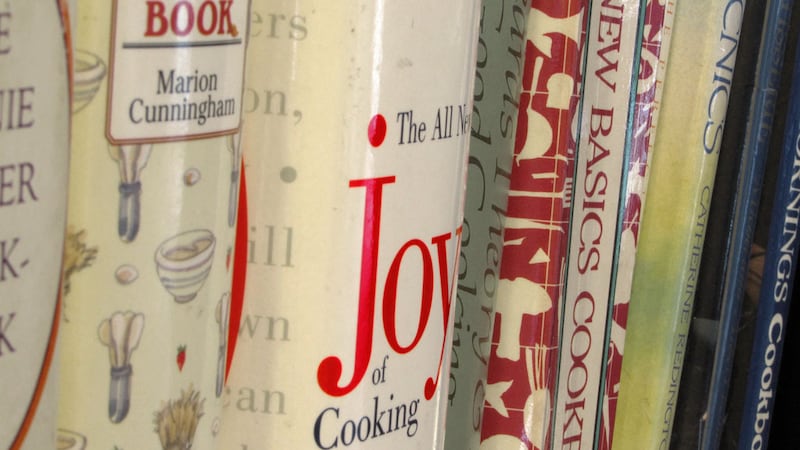Most everyone who cooks, or has ever attempted to, knows about The Joy of Cooking—as much reference guide as recipe book.
In 2009, a Cornell University study titled "The Joy of Cooking Too Much" blamed the book, in part, for America's obesity epidemic. But according to a recent article in the New Yorker, the research may have been sloppy or even manipulated to obtain false results.
John Becker, the great-grandson of the book's original author, lives in Portland with his wife. The two, according to the New Yorker piece, are the "keepers of the 'Joy' legacy"—meaning they've been responsible for crafting updated versions of the book, which was originally published during the Great Depression in 1936.
When the Cornell study, authored by Brian Wansink, was published, Becker immediately criticized the data—which purported that the recipes in newer editions of the book increase in calorie count.
Becker says Wansink's sample size was only .0004 percent of the book's content—or 18 out of 4,500 recipes.
Despite Becker's criticisms, the damning study kept showing up in overviews of the "Sad American Diet" that was responsible for America's "expanding waistlines."
The Cornell Food and Brand Lab even commissioned a cartoon of the book, which showed a newer edition proclaiming to an older one: "I have 44% more calories per serving than you do!"

That cartoon, published in 2015, prompted Becker to send Wansink's study to a statistician at Northeastern University, James Heathers—who, according to the New York Times, found "faulty arithmetic, sloppy recording, subsets of data that disappear at times and then 'magically reappear' later, and conclusions that reverse-engineer improbable samples."
Those critiques were bolstered last month by a BuzzFeed report. The article cited emails from Wansink to lab staff that allegedly urged them to reverse-engineer their hypotheses (i.e. manipulate data to say what they wanted it to).
"We have the dubious honor of being victim of Brian Wansink and Collin R. Payne's early work," Becker tweeted to the Joy of Cooking's account after the BuzzFeed report was published. (Payne is a New Mexico State University professor who collaborated with Wansink in the study.)
(THREAD) Inspired by @stpehaniemlee ’s new piece, we have decided to share this. We have the dubious honor of being a victim of @BrianWansink and Collin R. Payne’s early work. pic.twitter.com/s4NUd1YpqC
— Joy of Cooking (@TheJoyofCooking) February 27, 2018
When contacted by the New Yorker, Wansink stood by the findings of his study, but would not comment on the details of the BuzzFeed report.
The inscription in an early-60s edition of The Joy of Cooking, written by Becker's great-grandparents, perhaps summarizes the allegedly false data-reporting best.
"The sensational press releases which follow the discovery of fascinating fresh bits and pieces about human nutrition confuse the layman," it reads. "And the oversimplified and frequently ill-founded dicta of food faddists can lure us into downright harm."
The New Yorker piece, which bears reading in full, is here.
